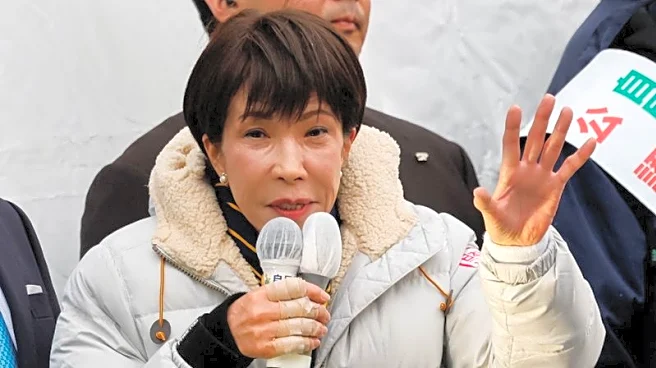What's Happening?
Iran has announced that its nuclear program is no longer bound by the restrictions of the 2015 Joint Comprehensive Plan of Action (JCPOA), following the expiration of the deal. The JCPOA, signed during President Obama's administration, aimed to limit
Iran's nuclear activities in exchange for lifting economic sanctions. Iran's Foreign Ministry has called for its nuclear program to be treated like that of any non-nuclear-weapon state, emphasizing its commitment to diplomacy and the peaceful use of nuclear energy. The International Atomic Energy Agency previously found Iran in violation of the agreement, leading to the reimposition of sanctions. Iran has criticized the US, UK, Germany, and France for exerting undue pressure and maintains it has never sought to weaponize its nuclear capabilities.
Why It's Important?
The expiration of the JCPOA marks a significant shift in international relations and nuclear policy. The reimposition of sanctions could further strain Iran's economy and impact global oil markets. The situation may lead to increased geopolitical tensions, particularly in the Middle East, as Iran's nuclear capabilities are no longer restricted. The US and European countries face challenges in addressing Iran's nuclear ambitions and ensuring regional stability. The development also affects global non-proliferation efforts, as Iran's actions could influence other countries' nuclear policies.
What's Next?
President Trump has expressed interest in pursuing a peace deal with Iran, indicating potential diplomatic engagements. However, the path forward remains uncertain, with ongoing tensions and failed attempts to revive the JCPOA. The international community may seek new negotiations or impose further sanctions to address Iran's nuclear activities. Regional stakeholders, including Israel, may react to Iran's announcement, potentially affecting security dynamics in the Middle East.
Beyond the Headlines
The expiration of the JCPOA raises ethical and legal questions about nuclear non-proliferation and the balance between national sovereignty and international security. The situation may lead to long-term shifts in global nuclear policy and influence future diplomatic strategies. The development also highlights the complexities of international agreements and the challenges in maintaining compliance and enforcement.

















